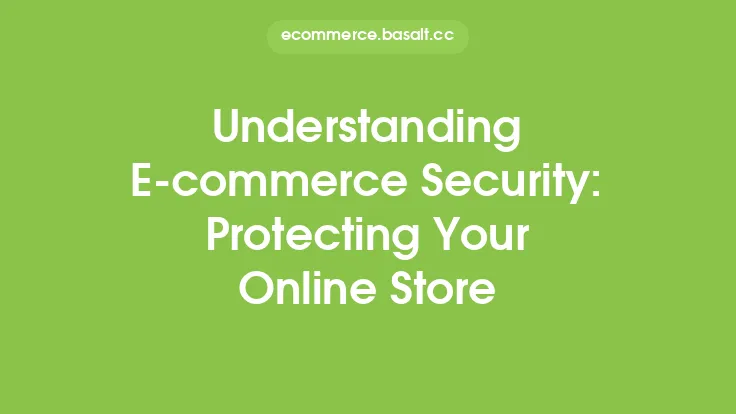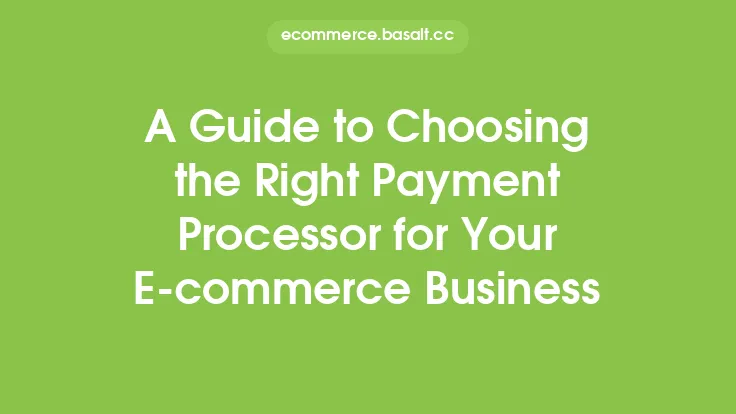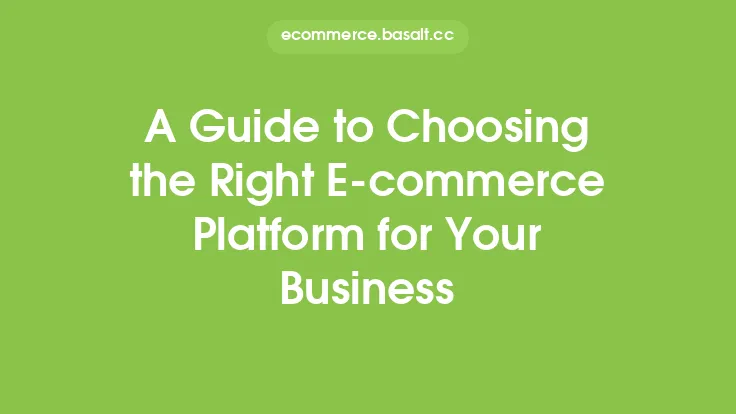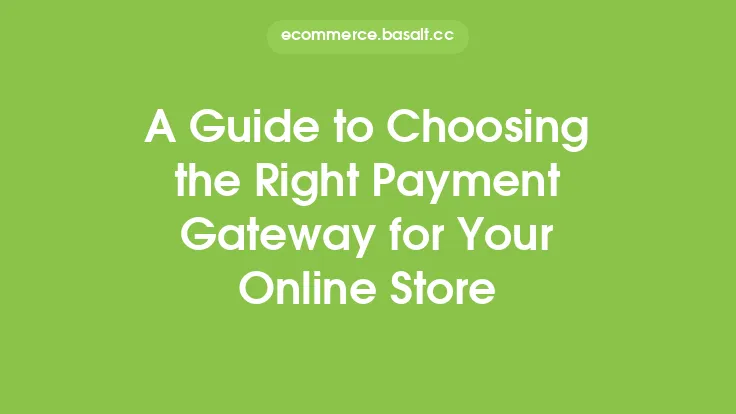As the world of e-commerce continues to grow and evolve, the importance of security cannot be overstated. With more and more consumers turning to online shopping, the potential for cyber threats and data breaches has increased exponentially. In order to protect your online store and the sensitive information of your customers, it is essential to have a comprehensive understanding of e-commerce security. This guide will provide you with the knowledge and tools you need to ensure the integrity and safety of your e-commerce platform.
Introduction to E-commerce Security
E-commerce security refers to the measures and protocols put in place to protect online stores from cyber threats, data breaches, and other forms of malicious activity. This includes a range of techniques and technologies, such as encryption, firewalls, and access controls, designed to prevent unauthorized access to sensitive information and prevent attacks on the website and its underlying infrastructure. Effective e-commerce security is critical to building trust with customers, protecting their personal and financial information, and maintaining the reputation and integrity of the business.
Understanding the Threats to E-commerce Security
There are numerous threats to e-commerce security, including hacking, phishing, malware, and denial-of-service (DoS) attacks. Hacking involves the unauthorized access to a website or database, often with the intention of stealing sensitive information or disrupting the normal functioning of the site. Phishing involves the use of fake emails, websites, or other forms of communication to trick customers into revealing their personal or financial information. Malware refers to malicious software that can be used to steal information, disrupt the functioning of a website, or take control of a user's computer. DoS attacks involve overwhelming a website with traffic in order to make it unavailable to users.
Key Components of E-commerce Security
There are several key components to e-commerce security, including encryption, firewalls, access controls, and secure sockets layer (SSL) certificates. Encryption involves the use of algorithms to scramble sensitive information, making it unreadable to unauthorized parties. Firewalls are used to block unauthorized access to a website or network, while access controls, such as passwords and two-factor authentication, are used to limit access to authorized personnel. SSL certificates are used to verify the identity of a website and ensure that all data transmitted between the website and its users is encrypted.
Implementing E-commerce Security Measures
Implementing effective e-commerce security measures requires a comprehensive approach that includes both technical and non-technical components. This includes the use of security software and hardware, such as firewalls and intrusion detection systems, as well as the implementation of security protocols and procedures, such as access controls and encryption. It is also essential to educate employees and customers on the importance of e-commerce security and the steps they can take to protect themselves and the business.
Best Practices for E-commerce Security
There are several best practices that can be followed to ensure the security of an e-commerce website. These include regularly updating and patching software and plugins, using strong passwords and two-factor authentication, and implementing a web application firewall (WAF) to protect against common web attacks. It is also essential to monitor the website and its underlying infrastructure for signs of malicious activity, such as unusual traffic patterns or suspicious login attempts. Additionally, it is recommended to use a secure payment gateway and to comply with industry standards and regulations, such as the Payment Card Industry Data Security Standard (PCI DSS).
The Importance of E-commerce Security for Businesses
E-commerce security is critical to the success and reputation of online businesses. A data breach or cyber attack can result in significant financial losses, damage to the business's reputation, and a loss of customer trust. In addition, businesses that fail to implement effective e-commerce security measures may be subject to fines and penalties for non-compliance with industry regulations and standards. By prioritizing e-commerce security, businesses can protect their customers, their reputation, and their bottom line.
Conclusion
In conclusion, e-commerce security is a critical component of any online business. By understanding the threats to e-commerce security, implementing effective security measures, and following best practices, businesses can protect their customers, their reputation, and their bottom line. As the world of e-commerce continues to evolve, it is essential to stay up-to-date with the latest security threats and technologies in order to ensure the integrity and safety of online stores. By prioritizing e-commerce security, businesses can build trust with their customers, protect sensitive information, and maintain the reputation and integrity of their brand.




